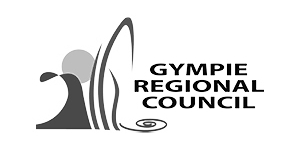Defining The Rules of The Game – tenure policies for shared facilities
Michael Connelly
Sharing sporting facilities makes perfect sense. Of course it's logical. We’ve got one club that plays on an oval field in winter, and another club that plays on the same shape field, but across summer. So let’s simply stick them together!
What could possibly go wrong?
Well, it turns out, quite a bit can go wrong. The ever increasing demands on a limited number of fields all too often leads to situations where conflict arises over shared sports facilities.
I’ve been called in to mediate negotiated solutions to conflicts over almost every issue, from line marking on fields to who owns the soft drink in the fridge. And when tempers boil over, it can get nasty. It can start with shouting matches in car parks and escalate to deliberate vandalism of fields and buildings, just to make life difficult for the other sport.
In a recent case that saw a committee member from one club deliberately damage their own playing field so that the other club couldn’t use it (talk about cutting your nose off to spite your face), the deterioration of club relationships could be directly linked to fights over lots of small issues surrounding the shared facilities. It is unlikely the relationship between these clubs would have been able to disintegrate to this level if there were rules in place to guide the allocation and use of the facilities. There was no policy position to guide how much the clubs should pay for field access or who would be responsible for each area of facility maintenance.
Many of the fights that arise between different tenants of the same sporting facilities stem from a lack of leadership and direction from the local Council when the sharing arrangements were originally set up, years or even decades earlier.
It’s often the smaller, regional or remote Councils that don’t have any tenure policies or implementation frameworks or procedures for the allocation of sports facilities. This can be because there simply hasn’t been the demand for sporting fields to warrant setting up policies for sharing. But more commonly, a lack of a policy framework can be both historical and political.
In the ‘good old days’, a handshake from the Mayor was rock-solid. It meant that the club would feel happy that they could have their field and the Mayor could always swoop in and save the day if things went sideways.
But over time, clubs on handshake agreements tend to develop a sense of entitlement and even make up their own rules as they go along. Informal agreements with Council that are full of holes tend to build a ‘Gravy Train’ mentality, where clubs grow to expect unlimited access to everything, with absolutely no accountability. Bring in a second, shared tenant and it’s no wonder they can end up shouting at anyone from Council who will listen to their problems about line marking or soft drink.
Where Councils still don’t have tenure policy frameworks, or where they exist but are inadequate, their Councillors may feel that it would be politically unpopular to enforce formal tenure on clubs. However, the cost of not acting usually far outweighs the time and investment it takes to sort the issues out correctly, once and for all.
As Council owns or controls the land (e.g. through trusteeship), it is logical for Council to set the guidelines for how its sports facilities are accessed. These guidelines should include defined obligations for things like maintenance, a system for setting fees and charges, and defined consequences for breaches.
It is when parties are entering into an agreement that all of the ‘rules’ should be clearly laid out. This is true for any agreement, like when negotiating for a new job, buying a house or talking about marriage. It’s at this point that all parties can consider their benefits and obligations together. And this is absolutely true for sports clubs seeking access to facilities.
It is more of a challenge to build rules into an agreement when it has been in operation for a long time already, but that challenge should not stop Councils and clubs from committing to the effort necessary to formalise tenure over shared sporting facilities. The longer an agreement built on sweetheart deals goes on, the more entrenched each party can become, and the more difficult it will be to fix the gaps in the agreement.
It would be naïve to think that clubs that share facilities will always live ‘happily ever after.’ It will still take good people, with good intentions and good communication, in clubs that share facilities to develop creative solutions to ongoing challenges around everything from sharing storage space to keeping key registers. The critical point is that the jobs of these good people, who are mostly volunteers giving up their time for free, will be so much easier when they have access to the same, clear guidelines that set out the rules of the game.
Councils should show leadership in providing clear guidelines for sports field tenure, based on strong policies, that set an objective standard that clubs can turn to for answers before problems escalate. The sooner Councils set these guidelines, the sooner clubs will be able to stop butting heads and start having constructive conversations about increasing participation in all of the sports offered at a facility.
So the next time you are tempted to focus on the ‘warring’ clubs on the back page of the paper who can’t agree on how to share their fields or their chip fryers, don’t overlook the role that Council should play in building a sustainable solution.
Michael Connelly has helped navigate solutions to more than his fair share of handshake deals. As a developer of policies for Councils and a mediator between clubs, he gets to see situations from both sides of the table. And it wasn't Michael who moved the soft drink...




























